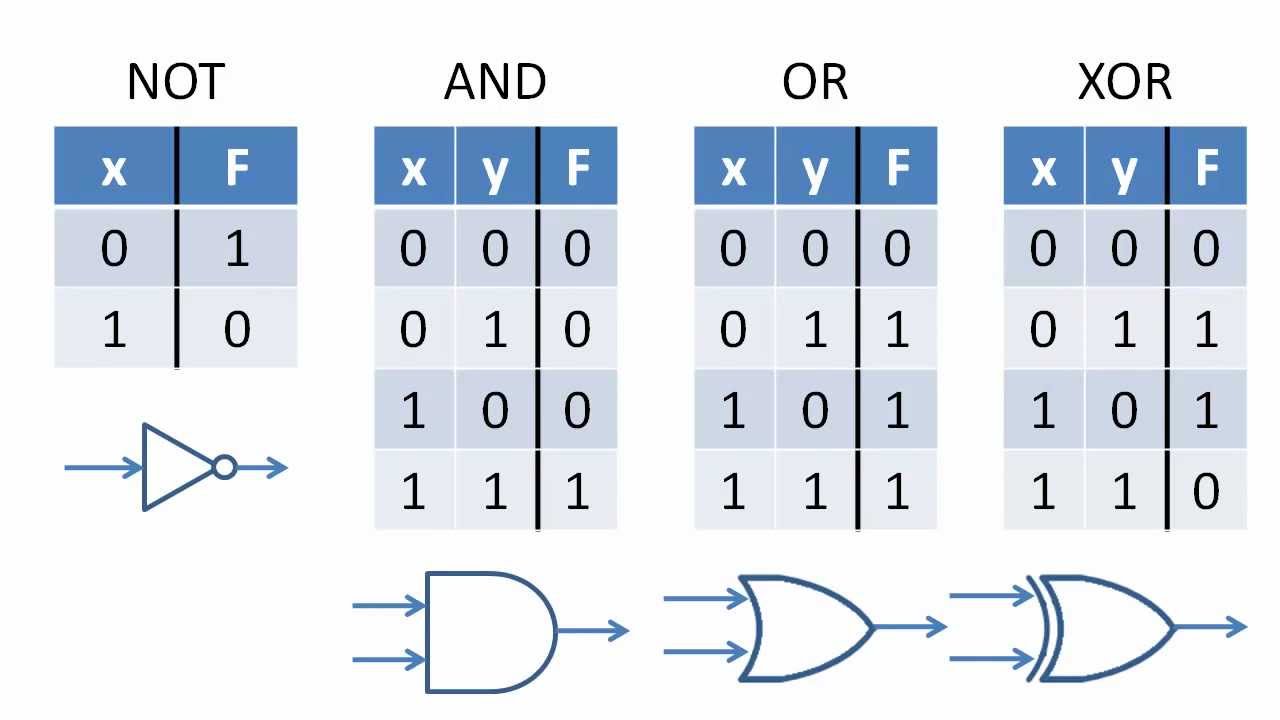
Boolean algebra might sound complicated, but it's actually a simple way to handle logic and math. Invented by George Boole in the 19th century, this system uses just two values: true and false, or 1 and 0. These values help computers make decisions and solve problems. Boolean algebra is the backbone of computer science, digital circuits, and even search engines. Ever wondered how your computer knows what to do when you click a button? That's Boolean algebra at work! It's like a set of rules that tells computers how to think. Ready to learn some cool facts about this amazing system? Let's dive in!
Boolean Algebra: The Basics
Boolean algebra is a branch of mathematics that deals with true or false values. It's the foundation of digital circuits and computer programming. Let's dive into some fascinating facts about Boolean algebra.
-
Boolean algebra was introduced by George Boole in 1854. He was an English mathematician and logician.
-
The primary operations in Boolean algebra are AND, OR, and NOT. These operations are fundamental in computer science.
-
Boolean algebra uses binary variables. These variables can only have two values: true (1) or false (0).
-
In Boolean algebra, the AND operation is represented by multiplication. For example, A AND B is written as A * B.
-
The OR operation in Boolean algebra is represented by addition. For example, A OR B is written as A + B.
-
The NOT operation in Boolean algebra is represented by a bar over the variable. For example, NOT A is written as Ā.
Applications in Computer Science
Boolean algebra plays a crucial role in computer science. It helps in designing circuits, programming, and more.
-
Boolean algebra is used in designing digital circuits. These circuits are the building blocks of computers and other electronic devices.
-
Programmers use Boolean algebra to write conditional statements. These statements help in decision-making processes in programs.
-
Boolean algebra simplifies complex logical expressions. This simplification makes it easier to design and analyze circuits.
-
Search engines use Boolean algebra to filter search results. Users can use AND, OR, and NOT to refine their searches.
-
Boolean algebra is used in error detection and correction. It helps in identifying and fixing errors in data transmission.
-
It is also used in cryptography. Boolean algebra helps in designing secure encryption algorithms.
Boolean Algebra in Everyday Life
Boolean algebra isn't just for mathematicians and computer scientists. It has practical applications in everyday life too.
-
Boolean logic is used in decision-making processes. For example, deciding whether to carry an umbrella based on weather conditions.
-
It is used in household appliances. For example, washing machines use Boolean logic to determine the washing cycle based on user inputs.
-
Boolean algebra is used in traffic light control systems. It helps in managing the flow of traffic efficiently.
-
It is used in alarm systems. Boolean logic helps in determining whether to trigger an alarm based on multiple conditions.
-
Boolean algebra is used in gaming. Game developers use it to create complex game logic and AI behavior.
Historical Impact and Evolution
Boolean algebra has a rich history and has evolved significantly since its inception.
-
Claude Shannon, known as the father of information theory, applied Boolean algebra to electrical circuits in 1937. This application revolutionized digital circuit design.
-
Boolean algebra laid the foundation for modern computer science. It is the basis for binary code, which is used in all digital devices.
-
The development of Boolean algebra influenced the creation of programming languages. Many programming languages use Boolean logic for control flow and decision-making.
-
Boolean algebra has influenced other fields of mathematics. It has applications in set theory, probability, and statistics.
-
The principles of Boolean algebra are used in artificial intelligence. AI systems use Boolean logic to make decisions and solve problems.
Fun Facts about Boolean Algebra
Let's explore some interesting and fun facts about Boolean algebra.
-
George Boole, the creator of Boolean algebra, was self-taught. He learned mathematics by studying books on his own.
-
Boolean algebra is sometimes called "binary algebra" because it deals with binary values.
-
The term "Boolean" is used in many programming languages. For example, in Python, a Boolean variable can be either True or False.
-
Boolean algebra is used in music production. Digital audio workstations use Boolean logic to process audio signals.
-
Boolean logic is used in search algorithms for social media platforms. It helps in filtering and displaying relevant content to users.
-
Boolean algebra is used in robotics. Robots use Boolean logic to make decisions based on sensor inputs.
Boolean Algebra in Everyday Life
Boolean algebra isn't just for computer scientists. It's everywhere. From search engines to digital circuits, Boolean logic powers much of our tech. When you use Google, Boolean operators like AND, OR, and NOT help refine your searches. Your smartphone? It relies on Boolean logic to function smoothly.
Understanding Boolean algebra can make you more tech-savvy. It helps in coding, database management, and even problem-solving. Knowing how to use Boolean operators can make your online searches more effective.
Boolean algebra's principles are simple yet powerful. They form the backbone of modern computing. So next time you flip a light switch or search for something online, remember Boolean algebra is at work. It's a small but mighty part of our daily lives, making things run efficiently and logically.
Was this page helpful?
Our commitment to delivering trustworthy and engaging content is at the heart of what we do. Each fact on our site is contributed by real users like you, bringing a wealth of diverse insights and information. To ensure the highest standards of accuracy and reliability, our dedicated editors meticulously review each submission. This process guarantees that the facts we share are not only fascinating but also credible. Trust in our commitment to quality and authenticity as you explore and learn with us.
